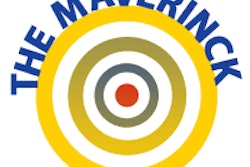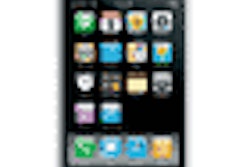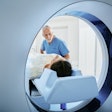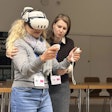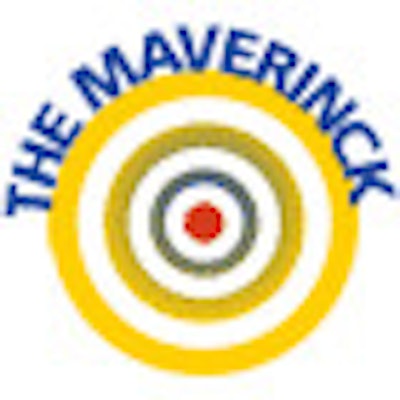
There are certain images we register unconsciously, with the precision of a camera, and they return into our minds every so often, quite clearly, almost as a déjà vu. For me, one of them is a corridor with a white-clad person avoiding any eye contact with me while typing a text message into a little black machine. It seems to be a common picture and is a recurrent small-talk topic during recent months, both with colleagues and friends.
So, have LBMs (little black machines, aka smartphones) changed our behavior in daily medical practice?
They seem to be everywhere now. Adolescents and male adults show them around and compare them as if they were the greatest achievements of their lives. Most likely they are. Women do it too. The devices are touched and handled all day long with more or less dirty fingers; I have even seen people who lick their screens to clean them. Toilet seats are often cleaner than computer keyboards and smartphone screens. Your little machine is a zoo of germs.
 Dr. Peter Rinck, PhD, Maître de Conférence/adjunct professor of medical imaging at the University of Mons, Belgium.
Dr. Peter Rinck, PhD, Maître de Conférence/adjunct professor of medical imaging at the University of Mons, Belgium.
There are numerous publications about the psychological background of the users of smartphones and similar gadgets. I don't want to add to them. I also don't want to add to the never-ending discussion of their advantages and disadvantages. I just want to pinpoint their destructive influence upon bedside manner.
Polite and professional physicians -- or in this context, anybody dealing with patients -- follow the simple basic Hippocratic rules by being tidy, honest, calm, understanding, and serious. They try to adapt to other people's feelings and put themselves in the patient's place; a sick person needs understanding and encouragement -- and human contact. There are too many hidden fears and tensions on and beneath the surface to be attended to.
Smartphones are toys, or perhaps ersatz shrines one prays to and that can respond, giving contentment and comfort. A recent article in the International Herald Tribune underlined this: "Matt Rodgers ... led an Apple team that wrote software for iPods. He loved his job and working for Apple, he said. But he added: 'In essence, we were building toys. ...' "1
Playing and chatting is not a doctor's job. Doctors are there to give contentment and comfort to their patients. Looking bored or staring at a toy and playing with it, even if it's only a nervous habit, makes people think doctors want to escape from them and that they are disinterested. They may get the impression that doctors are only waiting for the next "ding," for the next text message from somebody outside -- and they're right.
Such physicians come across as unreliable and insecure. They don't exactly strike the patient as being respectable. Instead, they look rude, playing with a fashionable toy. "Why does she hold that black thing in her hands and check it all the time? Doesn't she know what she should do?"
It's one step worse than pulling a medical pocket manual out of a white coat and starting to read it in front of a patient. Actions can speak as loudly as words, and this one means: I am not confident and knowledgeable enough to help you. And the little computer? Is all the missing knowledge buried in the little machine? Or is it a psychological climbing rope and an indicator, showing the user belongs to the new and better medical generation? It gives the impression that the device makes the person omniscient.
Instead, doctors should check the book and little black machine in their office or when they are alone. Anything else is not good medical practice. Outside, carry a smile or pleasant expression on your face. You shouldn't hold your smartphone in your hand, it doesn't give you any higher prestige; you should rather hold the hand of the patient. Look at him or her, maintain eye contact, don't look at your machine -- and don't play with it or text with one hand. Multitasking is not part of a doctor's job description.
Make this your one and only New Year's resolution. You won't lose weight, exercise more, or smoke less. Just leave your smartphone in your pocket when you deal with patients and friends.
The comments and observations expressed herein do not necessarily reflect the opinions of AuntMinnieEurope.com, nor should they be construed as an endorsement or admonishment of any particular vendor, analyst, industry consultant, or consulting group.
Reference
- Lohr S. Internet technologies prepare for next big phase: Everything. International Herald Tribune. 19 December 2011.





